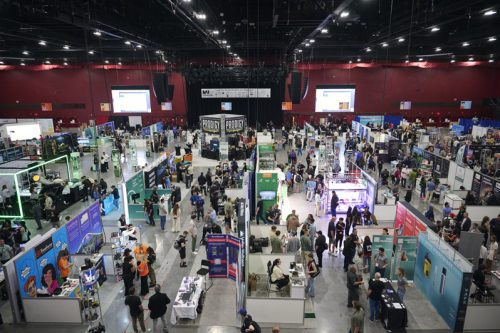Sponsored:
Online gambling is not only about the games themselves. It also includes the way people talk to each other and how platforms communicate with their users. This interaction has a direct effect on trust, on how fair the play feels, and on whether people return. In a land-based casino, social contact happens naturally. Online, it is recreated through different tools. Let’s examine the functionality of such tools, the comparison of online and offline and the trends that look into the future.
From Physical Rooms to Online Spaces
Social contact is an element of a land-based casino. People talk at the tables, react to wins together, and often see the same faces from one visit to another. When play moved online, operators had to find ways to recreate at least part of that interaction. Chat boxes at poker tables, community forums, live dealer streams, and shared jackpot events became tools to fill the gap.
The need grew during COVID-19, when closures of physical venues pushed many people online. Reports showed a sharp rise in digital gambling during 2020, and surveys later confirmed that over 40% of players value social contact as much as the games themselves. Online play is more convenient, yet it does not offer the same direct presence of other persons as physical casinos.
Main Forms of Online Interaction
Online gambling gives players a few simple ways to connect. It can be direct, like chatting with a dealer, or indirect, like checking scores on a leaderboard. Casinos also use bonuses as part of their contact with new users. These bonuses, such as the Valor Bet promo code, are given at registration and bring clear benefits: extra funds to start, access to chosen games, and rules that show how it works. Another way is platform features:
- Live dealer games – people can interact with the dealer and sometimes with other players. This setup mirrors parts of the physical casino environment.
- Chat and messaging – side chats in poker rooms or slot sessions let players react in real time and share short comments during play.
Tournaments and leaderboards – indirect contact is created when players compare scores and track their positions. Competing on rankings adds a shared sense of progress. - Community features – forums, loyalty tasks, and team challenges extend communication beyond a single session, building ongoing connections.
Research in recent years shows that many online players actively use these features, and a large share considers them almost as important as the bonuses themselves.
Beyond statistics, they help reduce the feeling of playing alone and create continuity, since interaction often becomes part of why people return to the same platform.
Role of Social Features in Trust and Retention
Trust in online gambling grows when interaction feels genuine. Features like group tournaments, visible leaderboards, or even shared jackpots remind players that they are part of a larger setting, not isolated behind a screen. Operators also strengthen this trust by being open about technical changes.
Publishing clear RTP figures or explaining new game rules signals fairness. According to Statista, more than half of surveyed users in 2023 said that transparent updates increased their confidence in a platform.
Retention is closely tied to these social bonds. A player who takes part in chats, competes in ranking lists, or joins loyalty challenges is more likely to return. The sense of belonging works as a soft form of commitment.

Industry reports show that platforms with active community features record higher repeat visits than those without. In this way, interaction is not only about communication, but also about building long-term stability.
New Directions in Social Interaction
Online gambling is adding new layers of contact through different digital tools. Social media allows players to share results, invite friends, and join groups outside the platform. Streaming has also grown quickly.
On Twitch and YouTube, people watch online gambling content, react in chat, and follow influencers who build communities around their channels.
Other developments focus on creating more structured and interactive play. Gamification adds badges, levels, and team competitions that keep users engaged beyond a single session. Virtual and augmented reality are being tested to bring back some feeling of a physical casino, with avatars and shared digital spaces.
Over the last five years, gambling-related streams have shown steady growth in viewers and hours watched, pointing to how interaction expands well beyond the games themselves.
Risks and Responsible Practices for Online Gambling
Social elements in online gambling have benefits, but they also carry risks. Group pressure can push players to stay longer or raise their stakes, which makes control harder. For this reason, clear tools for safer play must always be available and easy to use. Key measures include:
- Deposit limits – caps set before play to avoid overspending.
- Time reminders – alerts that show how long a session has lasted.
- Self-exclusion – the option to block access for days, months, or longer.
In the EU and UK, operators are required to keep these measures visible. Data from the UK Gambling Commission shows that around 6% of online players use self-exclusion each year, and the share of users setting deposit limits has been rising steadily. This confirms that safeguards are formal rules and tools people actively rely on.
Interaction has become a central part of online gambling, rather than something extra on the side. It builds trust, creates a link between sessions, and gives players reasons to return beyond the games themselves.
Live chats, tournaments, community tasks, and even welcome offers for new users are examples of how this contact is created. At the same time, safeguards such as deposit limits and self-exclusion remain necessary.
The future of online gambling will rely on keeping a balance between social features, entertainment, and clear protection measures.
–
Disclosure & Disclaimer:
This article is sponsored content. Respect My Region received compensation in connection with its publication. All views and information provided are for educational and entertainment purposes only and should not be considered financial or gambling advice.
Online gambling carries risk and should only be undertaken by individuals of legal gambling age in their jurisdiction. Always verify local laws before participating. Gambling is meant to be recreational, not a source of income. Set personal limits, play responsibly, and never gamble more than you can afford to lose.
Licensed platforms provide tools such as deposit caps, time reminders, and self-exclusion options—make use of these safeguards when needed.
If you or someone you know is experiencing gambling-related harm, seek support. In the United States, confidential help is available 24/7 via the National Problem Gambling Helpline at 1-800-522-4700. For readers outside the U.S., please contact local gambling support organizations







